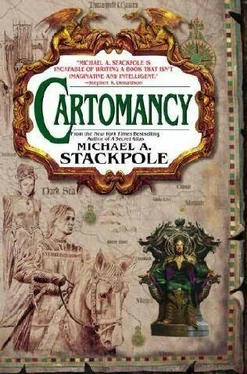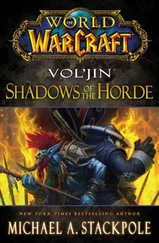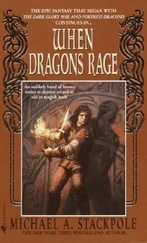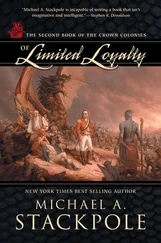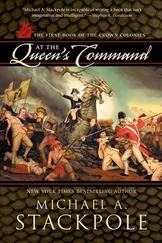Michael Stackpole - Chartomancy
Здесь есть возможность читать онлайн «Michael Stackpole - Chartomancy» весь текст электронной книги совершенно бесплатно (целиком полную версию без сокращений). В некоторых случаях можно слушать аудио, скачать через торрент в формате fb2 и присутствует краткое содержание. Жанр: Фэнтези, на английском языке. Описание произведения, (предисловие) а так же отзывы посетителей доступны на портале библиотеки ЛибКат.
- Название:Chartomancy
- Автор:
- Жанр:
- Год:неизвестен
- ISBN:нет данных
- Рейтинг книги:5 / 5. Голосов: 1
-
Избранное:Добавить в избранное
- Отзывы:
-
Ваша оценка:
- 100
- 1
- 2
- 3
- 4
- 5
Chartomancy: краткое содержание, описание и аннотация
Предлагаем к чтению аннотацию, описание, краткое содержание или предисловие (зависит от того, что написал сам автор книги «Chartomancy»). Если вы не нашли необходимую информацию о книге — напишите в комментариях, мы постараемся отыскать её.
Chartomancy — читать онлайн бесплатно полную книгу (весь текст) целиком
Ниже представлен текст книги, разбитый по страницам. Система сохранения места последней прочитанной страницы, позволяет с удобством читать онлайн бесплатно книгу «Chartomancy», без необходимости каждый раз заново искать на чём Вы остановились. Поставьте закладку, и сможете в любой момент перейти на страницу, на которой закончили чтение.
Интервал:
Закладка:
The Viruk had needed ministers. Men had needed them. Why would not the invaders need them? There was no question they would. In time, they would come to rely upon them and, once again, the way of the world would be restored and life would continue as it had been meant to.
But Prince Cyron threatened the natural order. By ordering Pelut to keep silent, he raised the Naleni bureaucracy above all the others. He was asking Pelut to create a new level of bureaucracy, which was something only the Emperor could do. Cyron was arrogating power and position he had no right to-trying to change the natural order by way of a most unnatural whim.
While Pelut Vniel did acknowledge that he, himself, was certainly the best candidate to be the Grand Minister of a new empire, he knew that the consequences of abiding by Cyron’s request would be swift, disastrous, and inescapable. Cyron would immediately set each nation’s bureaucracy against one another. The invasion would face a fractured enemy. Their advance would be certain, and the demise of each nation would be just as sure. Only by remaining united in the face of the threat could humanity survive.
Cyron missed a key point in his analysis of events. Dynastic revolutions came and went. Hot blood would earn a throne, but in time it would temper even the most vigorous bloodline. The bureaucracy could rein in even the most ambitious. It could thwart alliances or halt armies, all by misplacing dispatches or rerouting supplies. The invaders, unless possessing their own bureaucracy, would need the ministers.
And, in time, they will come to be dependent on us, and we will become their masters.
Only for the briefest of moments did Pelut Vniel feel guilt at suggesting collaboration with an enemy that likely was not human and clearly sought dominion over mankind. Collaboration with such an enemy was no vice. The farmer whose field was overrun with rabbits killed and ate them, preserving his family for a time of no rabbits. So it would be with the bureaucrats. They would save mankind for a time when the enemy would be weak and could be overthrown.
This left him, of course, with the problem of Prince Cyron. Here he had a twofold dilemma. The first was not that great a problem. Getting rid of Cyron was simply a matter of choosing someone to replace him. Countless of the inland lords would be happy to take his place. Because Lord Melcirvon had never been proficient with letters or ciphering, he entrusted all of his confidential correspondence to a clerk who, in turn, made copies of them available to the ministry-in hopes of currying favor. Providing information to the ministries had forever been the means of advancement, and one Pelut much preferred over the buying of position with newfound wealth.
Melcirvon’s letters revealed a rather extensive network of treasonous lords in the interior. All that their success would require was the raising of an army and an opportune moment to strike. Cyron had actually supplied the reason for the former, and Pelut would see to it that a call for troops went to the interior. It would be rebellious troops who would secure the northern Naleni border.
The lords of the interior could actually supply Pelut with the solution to his second problem. Cyron especially, but even his father before him, had encouraged the merchant houses in their trading ventures. As they grew rich, they created newer and bigger ships. The taxes they paid allowed Cyron to create even bigger ships, and to send them off on expeditions, like the one the Stormwolf was engaged in.
It would be tricky to manage, but Pelut could engineer a revolution that would replace Cyron with a trio of lords acting as corulers. They would impose taxes to enrich themselves and their home realms, which would beggar the merchants and slow the economic expansion. They would cancel Cyron’s current shipbuilding programs and discontinue funding any exploration. With a few well-placed hints on devoting oneself to security matters at home, he could also divide the trio into warring factions and they would collapse.
Giving him the opportunity to rise at the head of a ruling council that, unlike its counterpart in Helosunde, would not be foolish.
The brush descended and caressed the paper swiftly. Black ink bled out over the white surface and Pelut began to smile. He lifted the brush again and nodded. In a moment of inspiration, he had stroked the glyph for serenity, which is exactly what his plan would bring.
He lifted the paper from the table and realized, too late, that he had acted in haste. One droplet of ink trailed down, adding a stroke which changed serenity into ambition. Then it continued its waving trail down the page, cutting across another stroke.
Ambition became chaos.
Pelut set the paper back down again, then laid his brush beside it. A superstitious man might have read doom in the omen he’d witnessed, but Pelut Vniel prided himself on being free of superstition. He knew exactly what the drippings meant, and his smile broadened as he nodded.
Haste will be the undoing of all good. He knew Master Urmyr had written that in one of his books. And I must use better ink.
Chapter Fourteen
28th day, Month of the Wolf, Year of the Rat
9th Year of Imperial Prince Cyron’s Court
163rd Year of the Komyr Dynasty
737th year since the Cataclysm
Ixyll
The moment I awoke, I knew who I was not. Moraven Tolo I had been, or, rather, he had been a part of me. He was an aspect of who I was, and perhaps a glimmer of who I could have become. He had been useful, and doubtless would yet be useful, but he and I were separate individuals.
I had no sense of how much time had passed, and the place in which I found myself served only to heighten my confusion. I had access to Moraven’s memories, but they had a dreamlike quality to them. I could not be certain which parts of them were true or which might be his dreams. I had, after all, been somnambulant while he controlled my body. Yet, even in that state, I knew time had passed.
But this place-a tomb complex clearly-showed little signs of decay, and all the signs of Imperial construction. Gathering myself, I slowly stood. I wavered as dizziness washed over me, then rested against the wall until the world stopped spinning.
When it again turned normal, I stepped forward to the nearest sarcophagus. A woman’s effigy had been raised on the lid, and the artisan had done an admirable job. I recognized Aracylia Gyrshi and caressed her cold stone cheek. Her name I knew, and her loss I felt as keenly as a fist tight around my heart. I likely could have even picked her voice out of a chorus. I definitely remembered stitching up the wound that gave her the serpentine scar on her brow.
I could not, however, remember who I was.
“Awakened, I see.”
The voice did not surprise me, though it should have. A note of the familiar ran through it, too. I looked slowly to the right and found a Soth Gloon perched on another sarcophagus. “Seven eyes do not lie. I am awake. You were once known as Enangia.”
“An old name only whispered by ghosts.” He canted his maggot-white head. “I am Urardsa now. And what shall I call you?”
“Call me the name you know me by.”
“Most recently this is Moraven Tolo.”
I refused to take the bait in his game. He knew who I was, but he would not tell me. Soth logic demanded he withhold that information, and I had neither the patience for his game nor need for the information. Names and identities meant nothing-labels at best, masks hiding doom at the worst.
“Then I shall be Moraven Tolo for a while yet.”
The Gloon fell silent, which is what they preferred to do rather than cackle insanely, as a man might in a similar situation.
“You have been trapped here for how long?”
Читать дальшеИнтервал:
Закладка:
Похожие книги на «Chartomancy»
Представляем Вашему вниманию похожие книги на «Chartomancy» списком для выбора. Мы отобрали схожую по названию и смыслу литературу в надежде предоставить читателям больше вариантов отыскать новые, интересные, ещё непрочитанные произведения.
Обсуждение, отзывы о книге «Chartomancy» и просто собственные мнения читателей. Оставьте ваши комментарии, напишите, что Вы думаете о произведении, его смысле или главных героях. Укажите что конкретно понравилось, а что нет, и почему Вы так считаете.
